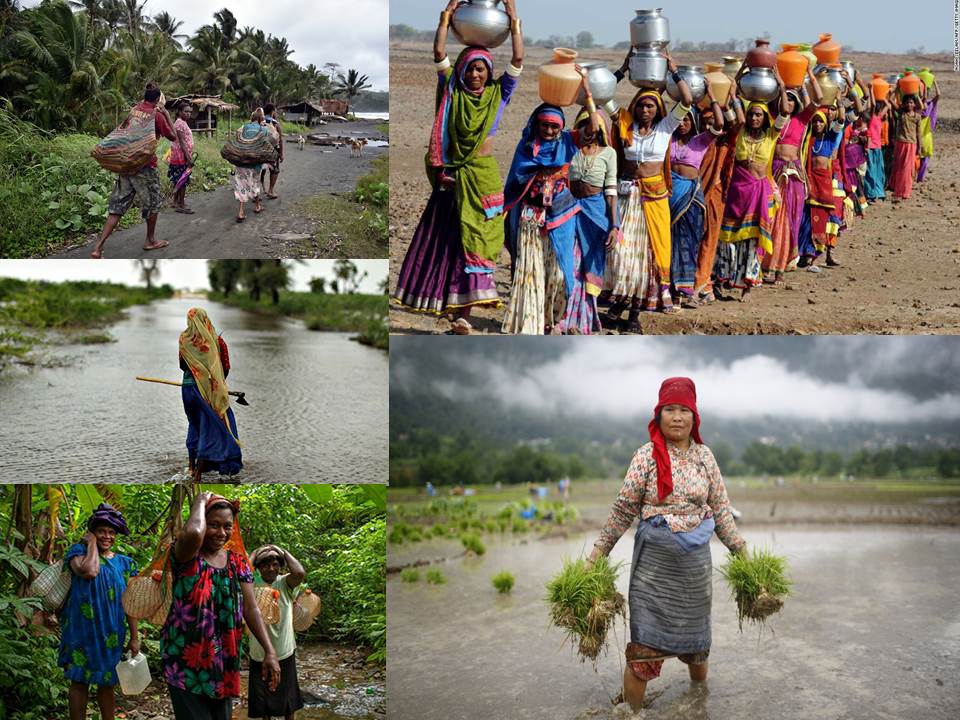By Juanita Nonwo – EM TV Online
Climate change is probably the most talked about issue of the century. All around the globe, its effects can be felt through rising temperatures, sea level rise, constant changes in weather patterns, variations in seasons, and many other inter-related effects.
One of the most evident effects of climate change can be seen in low-lying areas, affecting various components of animal life, the environment and human life itself.
UN reports suggest that unless governments act now to reduce emissions, no one will be safe from the effects of climate change.
According to WHO, between 2030 and 2050, climate change is expected to cause approximately 250,000 additional deaths per year, from malnutrition, malaria, diarrhoea and heat stress.
All populations are at risk to climate change, however, the effects are not equally felt.
Who will Climate Change mostly affect?
Reports suggest that the poor will be the hardest hit; this will include the young, old and the female population – that mainly make up the majority of the world’s poor who depend on the natural resources that are threatened by climate change.
It is critical to recognise that all too often women experience the impacts of climate change differently than men. Women are often affected disproportionately due to gender inequalities.
What is climate change mitigation?
Because of many climate change effects threatening the existence of life on earth, the need for global collaboration and unity comes in to play a role for a way to contain the situation.
The United Nations Environment Programme (UNEP) has stepped in to take the lead to minimise climate change and its effects, along with other organisations under UN and various stakeholders; this effort is called ‘climate change mitigation’ – efforts made to limit and as much as possible contain emissions of greenhouse gases which causes climate change.
What are the UN Systems?
Under the UN there are various organisations that work together to bring about positive changes to the areas affected by climate change.
These organisations form the UN systems that play the leading role in climate change mitigation.
It can also mean using new technologies and renewable energies, making older equipment more energy efficient, or changing management practices or consumer behaviour.
Protecting natural carbon sinks like forests and oceans, or creating new green agriculture are also elements of mitigation.
How does Gender Equality play a role in climate change mitigation?
In many countries, gender equality is still a barrier that needs to be addressed; women and girls are usually poorly represented when it comes to decision making. Addressing these issues gives a clear and well represented voice from the whole population so that all ideas can be considered in making decisions and policies towards climate change mitigation efforts.
A report from the United Nations Environment Program stated that men and women in their respective social roles are differently affected by the effects of climate change.
When a woman’s access to financial resources, land, education, health and other rights and opportunities is limited, her capacity for coping with and adapting to climate change suffers as well.
Across developing countries women are largely responsible for food production and procuring a household’s water supply and energy for heating and cooking. These tasks are becoming more difficult as the impacts of climate change increase. At the same time, women are often not involved in the development of climate technologies – which is the reason why gender equality needs to be addressed.
Small developing island countries are among the most vulnerable to climate change, and the Pacific Island women are no different to the other women in the world at risk to climate change.
However, they also have an important role to play in global climate change negotiations. A recent workshop was held at the Pacific Islands Forum Secretariat last month that aimed at consolidating their skills.
The Australian National University’s Asia Pacific College of Diplomacy and the Pacific Islands Forum Secretariat arranged the workshop with support from the Australian Department of Foreign Affairs and Trade.
Papua New Guinea was present among eight other participants from Cook Islands, Fiji, Kiribati, Nauru, Republic of Marshall Islands, Samoa, Tonga and Tuvalu.
The focus was placed on issues that included:
- how small island states can utilise the United Nations system, the science of climate change itself,
- pacific gender and social issues, and
- the principles of effective negotiation
At the workshop, Acting Secretary General of the Pacific Islands Forum Secretariat, Andie Fong Toy, stated the importance of addressing gender equality and climate change:
“Climate change and gender equality are both key priorities for the Pacific, and workshops like this are invaluable as our region prepares for important negotiations at the UN General Assembly in September and the COP22 Conference in Marrakesh in November,” Fong Toy said.


